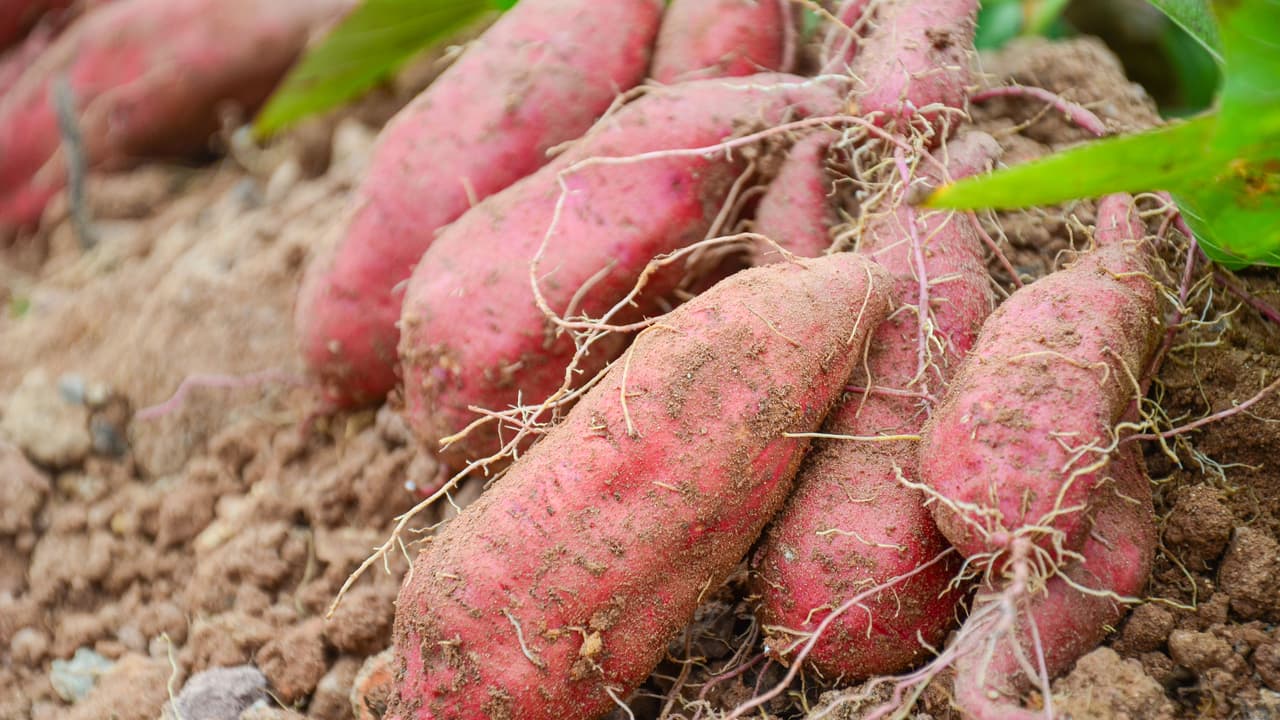Science
Scientists Decode Sweetpotato Genome, Unlocking Hybrid Origins

Scientists have successfully decoded the complex genome of the sweetpotato, revealing its hybrid origins from various wild ancestors. This significant achievement opens avenues for breeding more resilient, nutritious, and climate-smart varieties, enhancing food security globally. The sweetpotato, often perceived as a simple root vegetable, possesses one of the most intricate plant genomes documented to date.
A Unique Genetic Structure
Unlike humans, who inherit two sets of chromosomes—one from each parent—sweetpotatoes feature six complete sets, a condition known as hexaploidy. This unusual genetic configuration presents considerable challenges for researchers. To illustrate, decoding sweetpotato’s DNA is akin to sorting through six shuffled encyclopedias simultaneously.
A global research team, led by Professor Zhangjun Fei from the Boyce Thompson Institute, has achieved a milestone with the first complete, fully phased genome of the “Tanzania” variety, a sweetpotato cultivated across Africa for its hardiness and nutritional benefits.
Hybrid Heritage Unveiled
The genetic mapping of the sweetpotato has unveiled that it is not a single species but rather a hybrid formed from multiple wild relatives. Approximately one-third of its DNA is derived from Ipomoea aequatoriensis, a species native to Ecuador. Other segments of the genome show similarities to a wild Central American species known as Ipomoea batatas 4x. Researchers suspect that there may also be an undiscovered ancestor contributing to this genetic tapestry.
The sweetpotato’s genome is characterized as a “segmental allopolyploid,” indicating that it behaves genetically like a single species despite its hybrid nature. This intricate genetic composition is not merely a scientific curiosity; it has practical implications.
The multiple chromosome sets bestow upon sweetpotatoes remarkable adaptability, resilience, and disease resistance. With “backup” versions of many essential genes, they can withstand drought, fend off pests, and thrive in challenging environments. These traits are crucial for ensuring food security in vulnerable regions, particularly in sub-Saharan Africa.
Professor Fei stated, “Having a complete, phased genome gives us an unprecedented level of clarity. We can now read the sweetpotato’s genetic story with incredible detail.”
Implications for the Future
Decoding the sweetpotato genome represents not only an academic victory but also a practical tool for plant breeders. The genetic insights gained from this research enable targeted selection for traits such as higher yields, improved nutritional quality, and enhanced resistance to climate-related stresses and diseases.
This breakthrough also lays the groundwork for advancements in other crops with complex genomes, including wheat, bananas, and cotton. This is particularly pertinent in a world grappling with climate change and increasing food insecurity.
Sweetpotatoes currently nourish millions across the globe, from farmers in Africa to households worldwide. With its DNA now fully unraveled, this ancient crop stands on the brink of a new era of innovation, ready to play a pivotal role in securing the future of food in an unpredictable climate.
-

 World4 months ago
World4 months agoSBI Announces QIP Floor Price at ₹811.05 Per Share
-

 Lifestyle4 months ago
Lifestyle4 months agoCept Unveils ₹3.1 Crore Urban Mobility Plan for Sustainable Growth
-

 Science3 months ago
Science3 months agoNew Blood Group Discovered in South Indian Woman at Rotary Centre
-

 World4 months ago
World4 months agoTorrential Rains Cause Flash Flooding in New York and New Jersey
-

 Sports3 months ago
Sports3 months agoBroad Advocates for Bowling Change Ahead of Final Test Against India
-

 Top Stories4 months ago
Top Stories4 months agoKonkani Cultural Organisation to Host Pearl Jubilee in Abu Dhabi
-

 Science4 months ago
Science4 months agoNothing Headphone 1 Review: A Bold Contender in Audio Design
-

 Top Stories4 months ago
Top Stories4 months agoAir India Crash Investigation Highlights Boeing Fuel Switch Concerns
-

 Sports3 months ago
Sports3 months agoCristian Totti Retires at 19: Pressure of Fame Takes Toll
-

 Business4 months ago
Business4 months agoIndian Stock Market Rebounds: Sensex and Nifty Rise After Four-Day Decline
-

 Politics4 months ago
Politics4 months agoAbandoned Doberman Finds New Home After Journey to Prague
-

 Top Stories4 months ago
Top Stories4 months agoPatna Bank Manager Abhishek Varun Found Dead in Well









